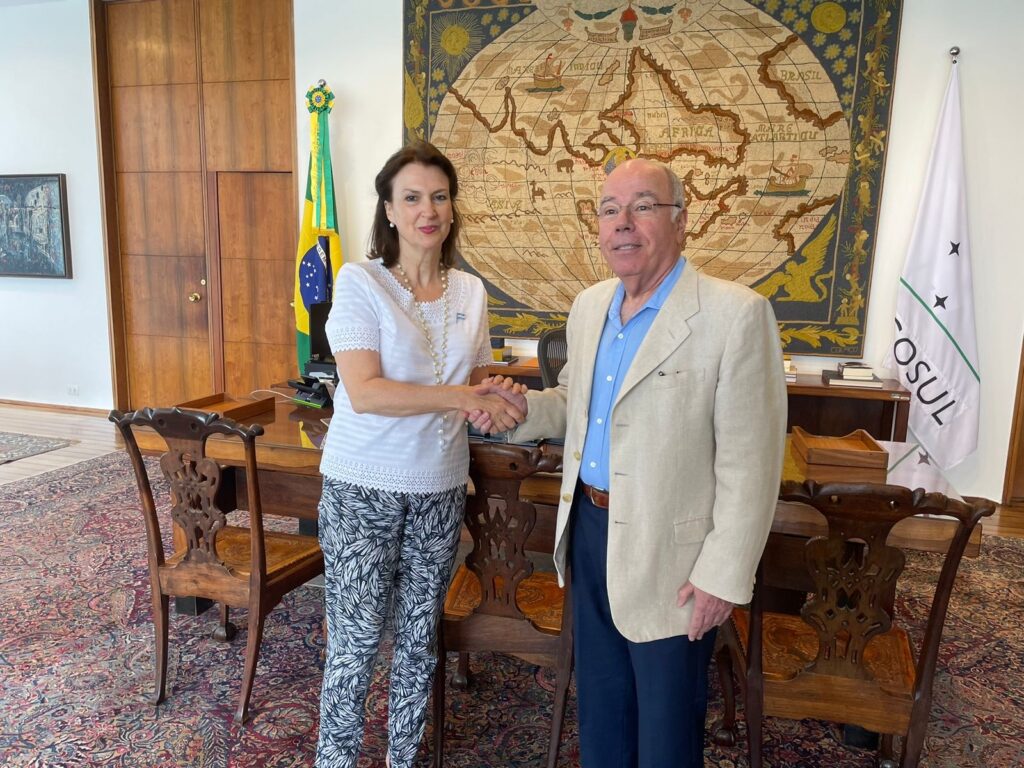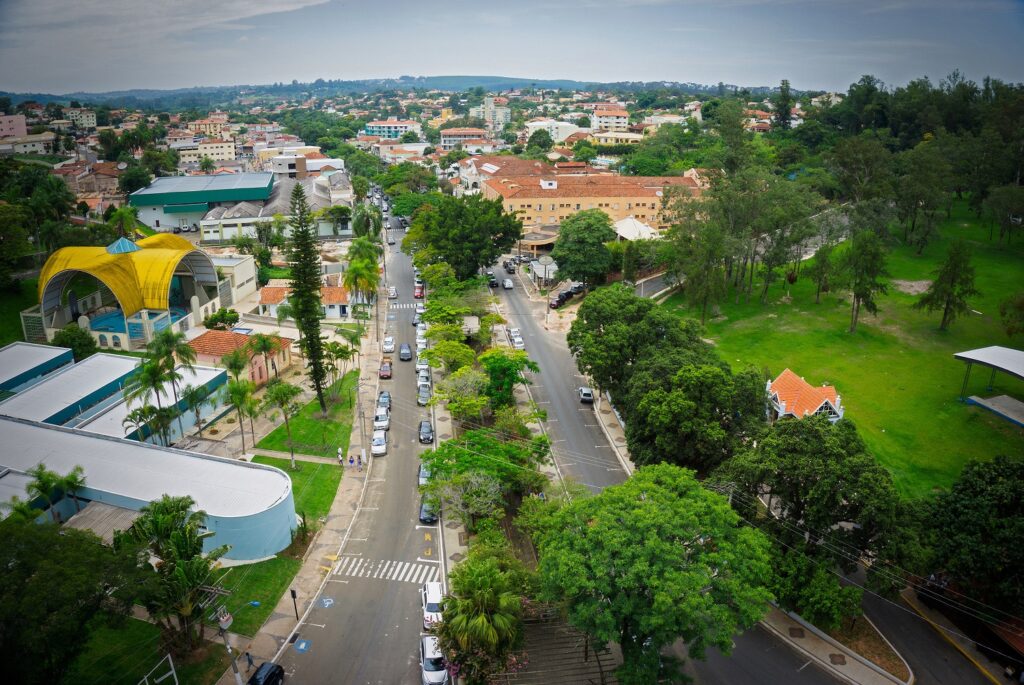São Paulo, Brazil – In the weeks following his victory in Argentina’s presidential elections, Libertarian Javier Milei has softened his bellicose criticism of Brazil’s President Luiz Inácio Lula da Silva, and seems to be moving toward more traditional diplomacy between the neighbouring countries.
During his campaign, Milei called Lula a thief, an ex-convict, and a communist. Days after he was elected, he had invited Lula to attend his inauguration on December 10.
The invitation reportedly came during a visit by Diana Mondino — who is tipped to be Milei’s foreign minister — to Brazil, where she visited Brazilian Chancellor Celso Amorim. The invitation came as a surprise because just days earlier Mondino told Russian news agency RIA Novosti that Argentina would “stop interacting with the governments of Brazil and China.”

Of course, Milei also famously invited former President Jair Bolsonaro to attend his inauguration, and Bolsonaro — an ideological ally — was among the first to congratulate the incoming president.
It’s not clear whether Lula will attend Milei’s inauguration, but some analysts predict that another high-ranking government official — possibly Vice President Geraldo Alckmin — would go in his place.
The Future of Brazil-Argentina Relations
Friends or foes, come December 10, Lula and Milei may have to set aside their ideological differences to ensure collaboration between South America’s largest economies.
According to Sidney Leite, a Ph.D. in Social History from the University of São Paulo and Coordinator for the Integrated Faculties of Rio Branco, there are two potential paths forward for relations between the two countries.

He told Brazil Reports that the first is a coexistence of protocol within the framework of international relations. In this scenario, ideological differences would be set aside in order to guarantee economic interests for both countries proceed uninterrupted.
In a less likely, more radical scenario, Leite says that the ideological differences between the two presidents could lead to a break in relations between the two countries, resulting in negative consequences for both sides.
“The tendency is to tone down these ideological clashes, which have been very tough, and to emphasize the interests of the state, as is dictated by good practice in international relations between countries,” said Leite. “Experience shows that the interests of the state prevail over the interests of governments or personal interests.”
Economic interests are at heart. Commerce between Argentina and Brazil generated USD $25 billion from January to October 2023, with Brazil exporting a total of USD $14.9 billion and buying USD $10.1 billion in goods and services from Argentina. Its neighbor is Brazil’s third largest trading partner behind the United States and China, and despite Brazil’s slight advantage in the bilateral trade balance, Professor Leite says that the two economies depend heavily on each other.
“There is a strong dependence of the Argentine economy on the Brazilian economy. I would highlight Brazilian companies that are currently operating in Argentina and occupy prominent positions, hegemonic positions in various segments of Argentina’s economy,” told the professor. He also said that there is no way Argentina could just turn its back and leave Brazil in the background.

Denilde Holzhacker, a Professor of International Relations at Brazil’s Higher School of Advertising and Marketing (ESPM), agrees, adding that with Argentina’s economic crisis, it’s not the best time for the country to cut economic ties with Brazil.
“I think Argentina has many aspects to lose in practical terms, for a government that has an economic crisis with inflation of 40% per month and 140% per year. So [Milei] will have to balance between which battles he will take up,” she told Brazil Reports.
The United States’ role
During his campaign, Milei, a capitalist and Libertarian, heavily criticized China and ran on a platform of dollarization of Argentina’s economy — rhetoric undoubtedly welcomed by the U.S.
He chose to make the U.S. the first country to visit after he was elected, and on November 28 was received by the U.S. National Security Advisor Jake Sullivan at the White House.
On November 30, Mondino, Milei’s expected foreign minister, said on X that Argentina wouldn’t be joining BRICS — the trade bloc with Brazil, Russia, India, China, and South Africa — as expected.

Professor Holzhacker cautions that the perceived support of Milei by the U.S. government may in fact be a strategy to weaken Chinese influence in Latin America.
“Biden will adopt Milei’s anti-China vision. So, in this sense, for [Biden] it is not the ideologically closest government, but it is a government that opposes great pressure in relation to the issue of Chinese rise in the Americas,” said Holzhacker.
Professor Leite argues that, in reality, neither Argentina nor South America are truly on the list of priorities for the U.S. government.
“Argentina is not a country that is within the range of action, or even perception, of the current US government,” he said. “The Biden administration has shown a total lack of interest in South America. So much so that [Biden] hasn’t even visited any South American country.”










